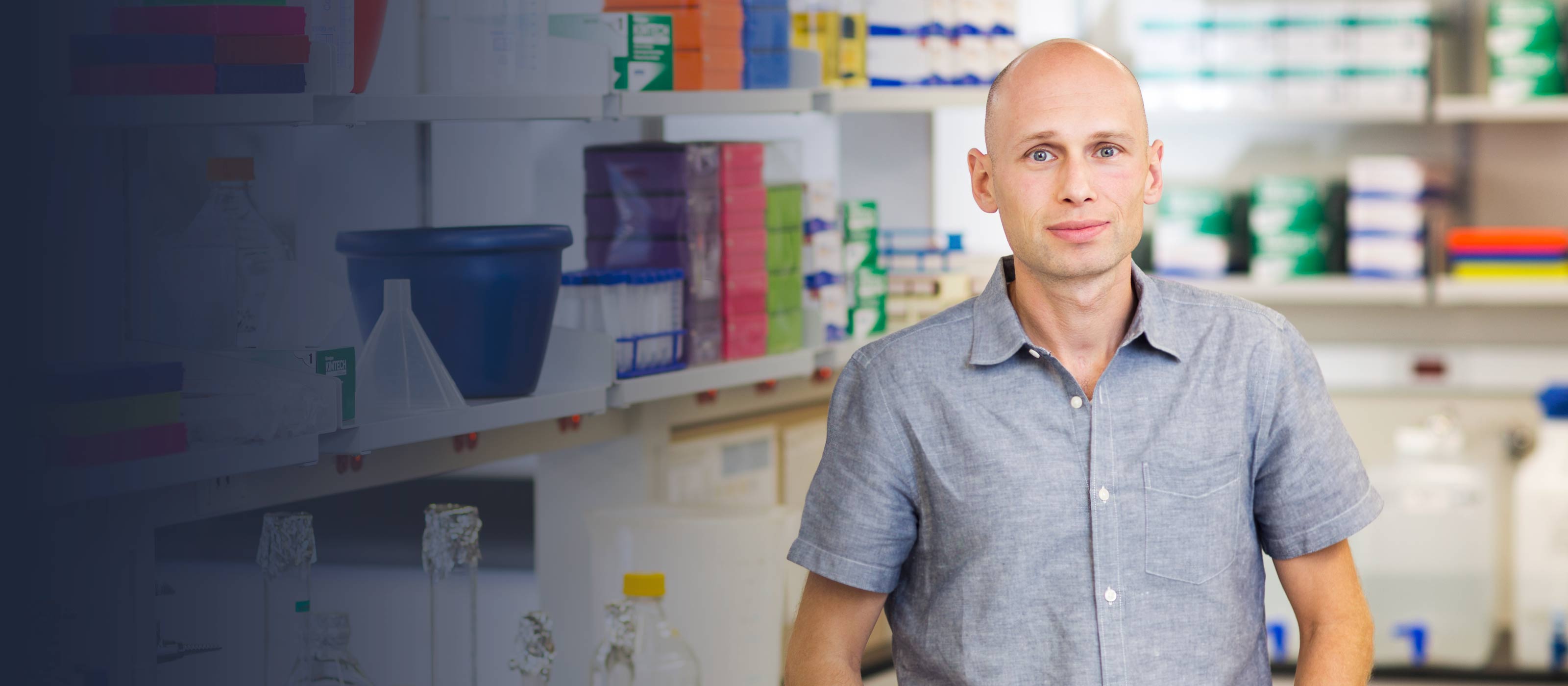Main content

Associate Professor, Department of Pathology
The Koralov lab, is dedicated to exploring the intricate processes of adaptive immune responses in health and disease. Our laboratory integrates cellular and molecular immunology with cutting-edge technologies to investigate lymphocyte development and the multifaceted roles of B and T cells in autoimmunity and cancer.
Central to our approach is a balance between fundamental immunological research and translational studies, with a particular emphasis on immunogenetics and the evolution of adaptive immune responses. Our research sheds light on lymphocyte differentiation, diversification of B cell repertoires, and the fine-tuning of clonal B cell evolution, highlighting the influence of specific miRNAs on B cell homeostasis, differentiation, and functionality.
Our innovative gene targeting strategies have led to the development of new mouse models, aiding in our understanding of lymphocyte function in various pathological contexts. A key aspect of our research arsenal is our proficiency in single-cell technologies. We have refined methods like ECCITE-seq to concurrently analyze antigen receptor diversity, gene expression, and phenotypic shifts within single cells, enhancing our ability to capture snapshots of the immune system in action.
We have applied our combined expertise in immunology and cancer biology to explore how tumor-intrinsic mutations in lung cancer affect immune surveillance. Employing advanced single-cell technologies to analyze T cell responses in patient biospecimens and genetically modified mouse models, we've begun to unravel how individual mutations contribute to immune evasion and resistance to cancer immunotherapy, pinpointing new vulnerabilities within these genetic subtypes of lung cancer.
Our engagement with cutaneous T cell lymphoma (CTCL) research has led to important discoveries regarding the role of microbial triggers in disease pathogenesis. Our commitment to CTCL research is steadfast, even as we ensure that our wider mission in adaptive immunology continues to be a primary focus. This is reflected in our exploration of psoriatic arthritis, where we investigate the molecular triggers of disease progression and the influence of microbial metabolites on inflammatory diseases.
The collaborative nature of our work is underscored by the many partnerships across NYU and beyond. Looking to the future, our lab remains devoted to contributing to the broader understanding of B and T cell responses in autoimmunity, infection, and cancer.
522 1st Ave, Smilow Research Building 511
New York, NY 10016
Associate Professor, Department of Pathology at NYU Grossman School of Medicine
PhD from Harvard University
Harvard Medical School/Children's Hospital Boston, Laboratory of Klaus Rajewsky
Blood. 2021 Oct 21; 138(16):1456-1464
Nature methods. 2019 May; 16(5):409-412
Arthritis & rheumatology. 2018 Jun; 70(6):855-867
Cell reports. 2016 11 22; 17(9):2271-2285
Journal of experimental medicine. 2020 Sep 07; 217(9):
Immunity. 2020 Mar 17; 52(3):571
Cell reports. 2020 Dec 01; 33(9):108436
Journal of investigative dermatology. 2018 May; 138(5):1116-1125